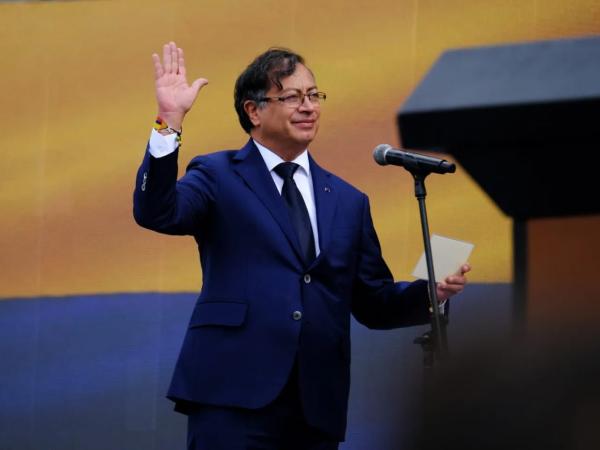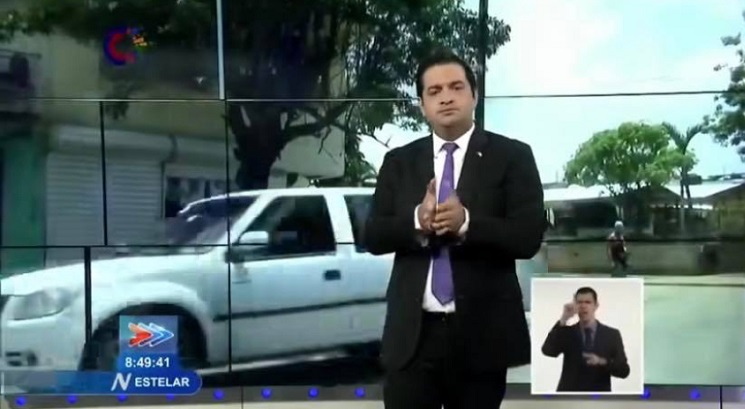The president of Colombia, Gustav Petro, This Sunday he is serving a week in office with a government style different from that of his predecessors and with an intense agenda that includes the announcement of the resumption of peace talks with the Eln guerrillas, the presentation of an ambitious tax reform and the renewal of the military leadership.
(Gustavo Petro asks businessmen to fight against hunger).
The new president has already begun to implement the multiple reforms with which he intends to carry out the government plan that he will execute for the next four years.
“Gustavo Petro has started out as an institutionalist president. The fears around him run the gamut (…) but none of that has happened.” affirmed the political analyst Mauricio Reina in a dialogue with the former Minister of Finance Mauricio Cárdenas.
Along these lines, the expert assessed that nothing of what some sectors foresaw has happened, such as Petro calling a Constituent Assembly or calling people to the streets to “erode institutions”, but on the contrary, it has sought alliances to guarantee governability.
COMPLETE PEACE
One of the pillars of the new government is peace and for this purpose an official delegation, led by Foreign Minister Álvaro Leyva, traveled to Havana on Thursday to begin rapprochements with the National Liberation Army (ELN) guerrillas and resume negotiations.
The talks were put on hold in 2018 due to the demand from the Eln by the government of his predecessor, Iván Duque, to release all the hostages he has in his power and renounce that and all his criminal activities.
In January 2019, after the ELN attack against the Cadet School in Bogotá, which left 22 dead and 68 injured, the Duque government asked Cuba to hand over the negotiators who are in Havana, but the island invoked diplomatic protocols to not comply with that request.
The trip by Leyva and the Colombian delegation to Cuba quickly rebuilt those relations and on Friday the government and the ELN made the resumption of peace negotiations official, something that was even supported by the UN Secretary General, António Guterres.
(‘Decarbonise the economy’: Petro’s proposal to businessmen).
Petro has shown willingness to undertake a policy of total peace that includes not only resuming talks with the ELN, but also talking to other armed groups.
“The elaboration of peace is being sought with other types of sectors, with other types of illegalities, but the ELN is going ahead because it is with whom there are more possibilities of resuming negotiations”expressed former Minister Cárdenas.
AMBITIOUS AND CONTROVERSIAL REFORM
Last Monday, the first day of the new Government, the Minister of Finance, José Antonio Ocampo, presented to Congress the tax reform bill with which the new Administration hopes to raise enough money to reduce the social debt.
The initiative is based on a higher collection of taxes for individuals, the reduction of tax benefits for companies, taxation of sugary drinks, oil, coal and gold exports when they exceed a certain ceiling, and a frontal fight against circumvention and evasion.
“This reform that we are proposing generates 25 billion pesos a year (about 5,795 million dollars today), but we hope that with the fight against tax avoidance and evasion that amount will rise to 50 billion pesos a year (about 11,590 million dollars). dollars), which is what was talked about throughout the presidential campaign,” Ocampo assured.
CONTROVERSIAL PROPOSAL
One of the most controversial proposals of the Petro government in its first week was to buy gas from Venezuela in case the country’s reserves are not enough, since its intention is that Colombia does not sign new exploration contracts.
“We have gas reserves for seven to eight years. If we needed to fill our energy matrix, we could make the gas transport connection with Venezuela”, explained the Minister of Mines, Irene Vélez, in an interview with the Blu Radio station.
According to Velez, “If it were the case that our reserves were not enough for our self-sufficiency, we need solutions, which could be connecting with other countries.”
That proposal caused controversy, even within the Historical Pact, the coalition that promoted Petro’s candidacy.
(President Petro announces how his military leadership was formed).
Senate President Roy Barreras wrote on Twitter that “The energy transition is a vital obligation” but “transitions are transitions”, so “gas cannot be replaced from one day to the next.”
“It turns out that gas is the cooking fuel for the poor and there is no cheaper fuel than that (…) And (the minister) said that there was no problem because they were going to replace gas with solar energy. That is even more absurd, Madam Minister: there is not enough capacity to generate solar energy”, expressed, for his part, former senator Jorge Robledo, a staunch opponent of Petro.
Another issue he promptly got his hands on was the renovation of the military and police leadership, whose new commanders he ordered as priorities “zero corruption and zero human rights violations.”
The Petro government is promoting from the outset the reforms that the president promised in the campaign and in its first week it has already laid the foundations for two issues that will be key in the next four years: “total peace” and social equality.
EFE







